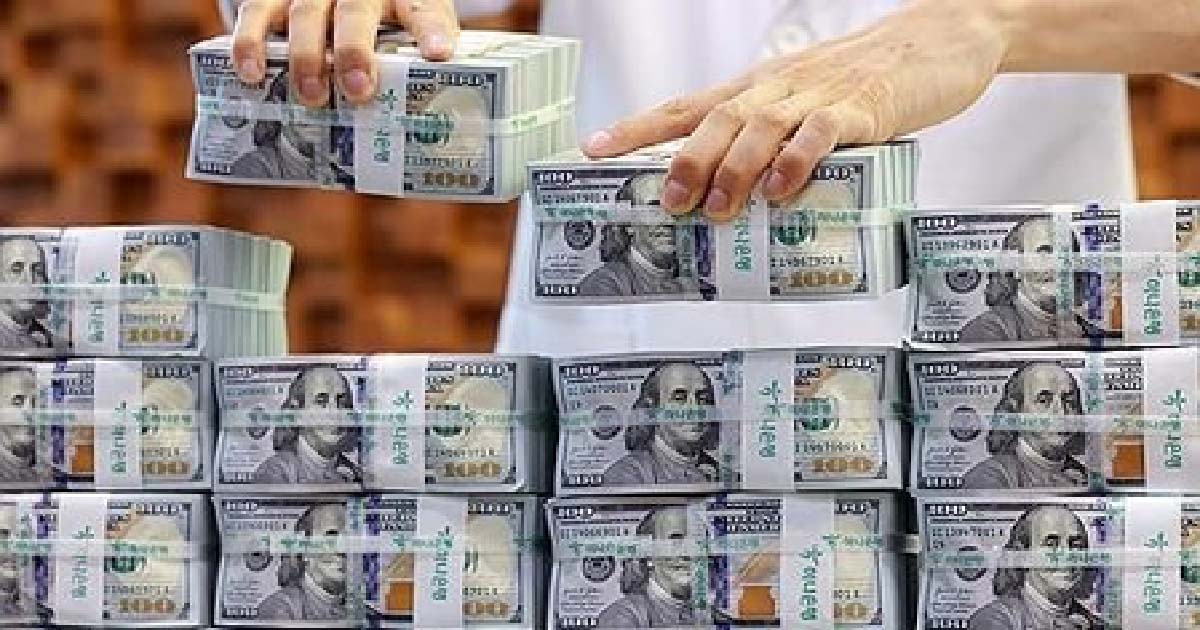Business
Indian pharma sector expected to grow 9-11% in FY22: ICRA
India’s pharma sector is expected to grow at 9-11 per cent in FY22, rating agency ICRA said on Tuesday.
It attributed the growth to the improving demand for non-Covid products in addition to new product introductions, rupee depreciation, and expanding market coverage.
“Going forward, sustenance of trend in doctor visits and elective surgeries given the news around the Omicron variant, and performance of new launches in addition to revenue growth momentum in the acute segment will remain key monitorables,” ICRA said.
Further, pricing pressures and rising raw material costs are expected to contract margins for the sector to 22.5 per cent in FY22 and further to pre-Covid levels of 21-22 per cent in FY23, said Deepak Jotwani, Assistant Vice President and Sector Head, ICRA.
The outlook for the pharma sector remains ‘Stable’ led by healthy revenue growth and is seen remaining comfortable despite higher capital expenditure and R&D expenses given the robust cash levels.
Business
Foreign currency deposits in S. Korea post biggest drop in nearly 2 yrs in Oct

Seoul, Nov 28: Foreign currency deposits in South Korea declined by the most in about two years in October amid increased corporate repayment of foreign-currency borrowings and overseas investments by pension funds, central bank data showed on Friday.
Outstanding foreign currency-denominated deposits held by residents came to $101.83 billion as of end-October, down $5.26 billion from a month earlier, according to data from the Bank of Korea (BOK), Media reports.
It marked the sharpest monthly fall since January 2024, when deposits declined by $5.78 billion, and the second straight month of decrease.
Residents include South Korean citizens, foreigners who have lived in the country for more than six months, and foreign companies. The data excludes interbank deposits.
“The decline was due mainly to companies’ repayment of foreign-currency borrowings, a drop in investor deposits at securities firms and overseas investment executions by pension funds, among other factors,” a BOK official said.
Corporate foreign currency deposits fell $5.5 billion on-month to $86.76 billion, while individual holdings gained $240 million to $15.07 billion.
By currency, U.S. dollar-denominated deposits dropped $5.08 billion to $85.63 billion, and Japanese yen deposits fell $260 million to $8.63 billion.
Euro deposits were nearly unchanged at $5.01 billion, while Chinese yuan deposits increased $60 million to $1.25 billion, the data showed.
Meanwhile, South Korean stocks traded sharply lower late Friday morning as investors dumped tech shares amid lingering uncertainties over artificial intelligence (AI) technology.
The benchmark Korea Composite Stock Price Index (KOSPI) lost 39.81 points, or 1 per cent, to 3,947.1, as of 11:20 a.m.
Most shares traded in negative territory. Market bellwether Samsung Electronics sank 1.93 percent, and SK hynix fell 0.74 per cent.
Top carmaker Hyundai Motor retreated 0.19 percent, and its sister Kia dropped 0.26 per cent.
Leading battery maker LG Energy Solution tumbled 5.94 per cent, and defense giant Hanwha Aerospace declined 2.2 per cent.
The local currency was quoted at 1,465.5 won against the greenback as of 11:20 a.m., down 0.25 won from the previous session’s close.
Business
Sensex, Nifty turn positive after early losses ahead of key Q2 GDP data release

Mumbai, Nov 28: Benchmark indices Sensex and Nifty turned positive on Friday after recovering from early losses, supported by buying on dips ahead of the key Q2FY26 GDP data, which will be released later today.
The Sensex rose 101 points to 85,821, up 0.12 per cent, while the Nifty inched up 35 points to 26,251, a gain of 0.14 per cent.
“The Nifty seems likely to stay within a defined range, with near-term resistance in the 26,300–26,350 area and support near 26,050–26,100; dips toward this support zone may offer fresh buying opportunities,” analysts said.
Strong buying in heavyweight stocks such as Mahindra & Mahindra, Tech Mahindra, Titan, SBI, Maruti Suzuki, Hindustan Unilever, Tata Motors PV, and Sun Pharma helped the market erase its morning losses.
However, the overall upside was limited due to weakness in Asian Paints, Power Grid, Adani Ports, Axis Bank, Infosys, Eternal, HDFC Bank, and Tata Steel.
The market action comes a day after both indices hit fresh all-time highs in intra-day trade on Thursday, with the Sensex crossing 86,000 for the first time and the Nifty moving past 26,300.
In the broader market, sentiment remained weak as the Nifty MidCap index slipped 0.16 per cent, while the Nifty SmallCap index fell 0.36 per cent.
Among sectors, Nifty Auto led the gains with a 0.5 per cent rise, followed by Nifty FMCG up 0.16 per cent and Nifty Metal up 0.13 per cent. On the other hand, the Nifty Private Bank index declined 0.15 per cent, weighing slightly on overall market momentum.
Business
Job postings in India stay above pre-Covid pandemic levels: Report

New Delhi, Nov 27: Formal job creation in India softened in the month of October but despite this, job postings remained above the pre-Covid pandemic level, a report said on Thursday.
“Amid slowdown, Indian job postings are still 60 per cent above pre-pandemic levels, but have fallen 25 per cent since their peak in January 2023,” Indeed, a leading hiring platform, said in its report.
Over the past three months, job postings declined in almost three-quarters of occupations. Yet in a softening job market, there will still be some strong performers, and the past three months have been no exception, said the report.
Job postings in cleaning and sanitation rose around 20 per cent over the past three months, ahead of community and social service (17.4 per cent), dental (13.1 per cent), nursing (11.2 per cent) and food preparation and service (10.3 per cent).
Another positive was the posting for human resources, which climbed 2.3 per cent.
However, these gains were more than offset by weakness in banking and finance, where postings fell 25.6 per cent, along with legal (-22.4 per cent), retail (-16.7 per cent) and loading and stocking (-15 per cent), the report noted.
Every month, the Indian workforce gradually transitions towards more formal work arrangements. As the nation transitions, job creation in the formal sector is expected to outpace overall employment growth nationwide, said Callam Pickering, Indeed’s APAC Senior Economist.
“This transition is also why job postings in India have been stronger than in other Indeed markets, both during the post-pandemic job boom and the subsequent slowdown,” he added.
Meanwhile, during the month, 9.1 per cent of Indian job postings explicitly mentioned phrases such as ‘work from home’ or ‘work remotely’ in their job descriptions. That’s up from 7.6 per cent a year ago.
Remote opportunities are most common in IT infrastructure, operations and support at 18.2 per cent of postings in the October quarter 2025, ahead of community & social service (15.1 per cent) and industrial engineering (14 per cent).
-

 Crime3 years ago
Crime3 years agoClass 10 student jumps to death in Jaipur
-

 Maharashtra1 year ago
Maharashtra1 year agoMumbai Local Train Update: Central Railway’s New Timetable Comes Into Effect; Check Full List Of Revised Timings & Stations
-

 Maharashtra1 year ago
Maharashtra1 year agoMumbai To Go Toll-Free Tonight! Maharashtra Govt Announces Complete Toll Waiver For Light Motor Vehicles At All 5 Entry Points Of City
-

 Maharashtra1 year ago
Maharashtra1 year agoFalse photo of Imtiaz Jaleel’s rally, exposing the fooling conspiracy
-

 National News1 year ago
National News1 year agoMinistry of Railways rolls out Special Drive 4.0 with focus on digitisation, cleanliness, inclusiveness and grievance redressal
-

 Maharashtra1 year ago
Maharashtra1 year agoMaharashtra Elections 2024: Mumbai Metro & BEST Services Extended Till Midnight On Voting Day
-

 National News1 year ago
National News1 year agoJ&K: 4 Jawans Killed, 28 Injured After Bus Carrying BSF Personnel For Poll Duty Falls Into Gorge In Budgam; Terrifying Visuals Surface
-

 Crime1 year ago
Crime1 year agoBaba Siddique Murder: Mumbai Police Unable To Get Lawrence Bishnoi Custody Due To Home Ministry Order, Says Report
















